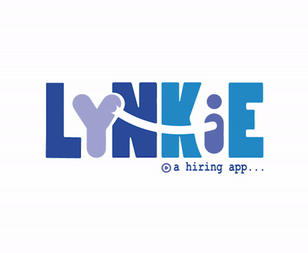Modern Companies Culture


May 10, 2024
Are Companies Hiring Based On Cultural Fit Rather Than Just Qualifications?
It's a common question in today's job market: are companies prioritizing cultural fit over qualifications when making hiring decisions? While qualifications are important, many employers are recognizing the significance of a candidate's compatibility with their organization's culture. This shift in mindset has sparked a debate among job seekers and professionals alike. In this blog post, we will explore the importance of cultural fit in the hiring process and how it impacts both employers and employees.
The Importance of Cultural Fit in Modern Companies
Aligning Values and Beliefs
Cultural fit is becoming increasingly important in the hiring process as companies realize the impact of aligning values and beliefs between employees and the organization. When individuals share similar core values and beliefs with their workplace, they are more likely to be motivated, engaged, and committed to their roles.
Enhancing Team Cohesion and Productivity
With a focus on cultural fit, companies are able to enhance team cohesion and ultimately improve productivity. Team members who align culturally tend to communicate more effectively, collaborate better, and work towards common goals with a sense of unity and purpose.Aligning values and beliefs leads to a more cohesive team, while enhancing team cohesion and productivity in the workplace. Companies that prioritize cultural fit are not only able to build stronger teams but also create a positive work environment where employees thrive.
Balancing Cultural Fit with Professional Qualifications
Risks of Overemphasizing Cultural Fit
With the emphasis on cultural fit in hiring decisions, there is a risk of overlooking candidates who may bring valuable skills and perspectives to the team but do not perfectly align with the company's culture. This can lead to a lack of diversity and stifle innovation within the organization.
Strategies for a Holistic Hiring Approach
For organizations looking to strike a balance between cultural fit and professional qualifications, implementing a holistic hiring approach is key. By considering a candidate's qualifications, experience, and cultural fit equally, companies can build diverse teams that are both skilled and aligned with the company values. Approach: This approach involves creating structured interview processes that focus on both technical skills and cultural fit, as well as providing diversity and inclusion training for hiring managers to ensure unconscious biases are minimized during the selection process.
Measuring Cultural Fit During the Hiring Process
Behavioral Interview Techniques
For companies looking to assess cultural fit during the hiring process, behavioral interview techniques are a valuable tool. By asking candidates about their past experiences and how they have handled specific situations, recruiters can gain insights into their values, attitudes, and compatibility with the company’s culture. This technique focuses on understanding how candidates have behaved in the past as a predictor of their future actions within the organization.
Assessments and Work Trials
Any hiring process that aims to measure cultural fit should include assessments and work trials as part of the evaluation. These tools can provide valuable information on a candidate's skills, work ethic, and compatibility with the team. By observing how candidates approach tasks and interact with potential colleagues, recruiters can make more informed decisions about their fit within the company. Assessments and work trials are particularly useful for roles that require specific skills or working styles, allowing recruiters to see firsthand how candidates perform in real-world scenarios. This approach can help companies avoid the pitfalls of hiring based solely on qualifications, ensuring that new hires are not only competent but also aligned with the organization's values and culture.
Interview
During interviews, recruiters can probe deeper into a candidate's motivations, communication style, and values to assess their cultural fit. By asking targeted questions and actively listening to responses, recruiters can gauge whether the candidate's attitudes and behaviors align with the company's culture. Interviews also offer candidates the opportunity to ask questions and determine if the company's values and work environment are a good match for them.
Cultural Fit Versus Diversity and Inclusivity
Many companies today are focusing on hiring based on cultural fit rather than just qualifications. This approach aims to ensure that new hires align with the company's values and work well within the existing team dynamics. However, the debate continues on whether cultural fit should take precedence over diversity and inclusivity in the hiring process. For further reading on the topic, you can check out this article on Qualifications vs Cultural Fit- Which Is More Important?
The Potential for Bias
An important consideration in hiring for cultural fit is the potential for bias to creep into the decision-making process. Unconscious biases can lead to hiring decisions that are based on personal preferences rather than objective qualifications. This can result in a lack of diversity within the workforce and hinder the company's ability to benefit from a wide range of perspectives and experiences. Fostering a Diverse Workplace While Maintaining Cultural Fit Cultural fit is crucial for a harmonious work environment, but it should not come at the cost of diversity and inclusivity. Companies can still prioritize cultural fit while actively seeking out candidates from diverse backgrounds. For instance, implementing structured interview processes, diverse interview panels, and conducting regular diversity training can help strike a balance between maintaining cultural fit and fostering a diverse workplace.
Summing up
Considering all points, companies are increasingly prioritizing cultural fit over qualifications when hiring new employees. While qualifications are important, companies are also recognizing the significance of a candidate's alignment with the company's values, mission, and team dynamics. By focusing on cultural fit, organizations can build stronger, more cohesive teams and improve overall employee satisfaction and retention. It is imperative for companies to strike a balance between qualifications and cultural fit to ensure they are hiring the right candidates that will contribute positively to the company's success in the long run.
Recent Posts


Modern Companies Culture
It's a common question in today's job market: are companies prioritizing cultural fit over qualifications when making hiring
Network Valueable Strategy
There's no denying the importance of networking in today's competitive job market. As technology continues to advance
